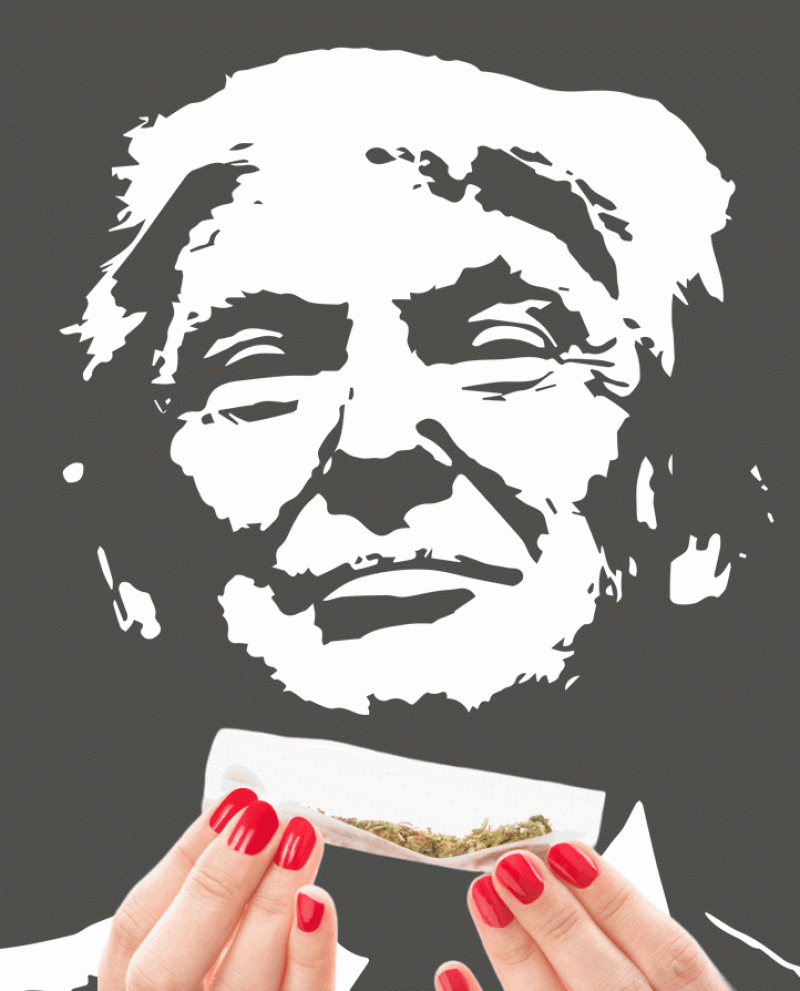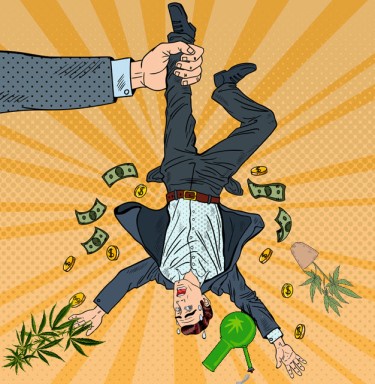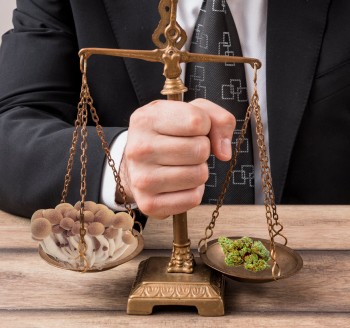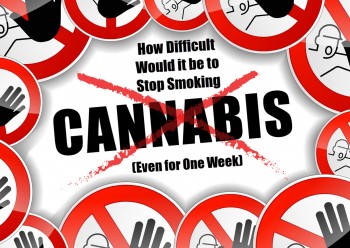
The Current Climate of Cannabis and international implications of Trump policies
Just when you thought the world of cannabis policy couldn't get any stranger, we find ourselves in what feels like a political acid trip gone sideways. It's been over a month since Trump reclaimed his seat in the spotlight, and while the apocalypse hasn't arrived (yet), we're witnessing some seriously mind-bending policy proposals that would make even Salvador Dalí question reality.
Picture this: Trump wants to rename the Gulf of Mexico (because apparently, geography needs a MAGA makeover), slap massive tariffs on our neighbors like he's dealing cards at a high-stakes poker game, and has his sights set on everything from Greenland to the Panama Canal. It's like watching a real-estate mogul play Risk with actual countries.
But here's where things get particularly interesting for us cannabis enthusiasts: Trump's declaration of drug cartels as terrorist organizations and his war cry to ramp up the War on Drugs in response to the fentanyl crisis. Now, I've been analyzing drug policy long enough to know that when politicians start throwing around terms like "terrorist" and "war on drugs" in the same sentence, we're in for some interesting times.
As someone who's watched the cannabis industry evolve from back-alley dealings to billion-dollar legitimate businesses, I can't help but feel a sense of déjà vu mixed with genuine concern. Are we about to witness a dramatic shift in the progress we've made toward legalization? Will international cannabis trade become another casualty in this new era of aggressive foreign policy?
Today, I'm going to break down what Trump's presidency might mean for cannabis policy, both domestically and internationally. Buckle up, folks – we're in for a wild ride through the next four years, and if there's one thing I've learned about cannabis policy, it's that reality often proves stranger than fiction.
When Policy Goes Bad…
Let me tell you something about the War on Drugs that you won't find in textbooks or policy papers. I lived in Mexico during the bloodiest period of its drug war, 2006-2012, and what I witnessed was far from the sanitized version most Americans hear about on their evening news.
While today's headlines about shootouts in Culiacán might shock you, they pale in comparison to what happened during Calderón's presidency. Imagine driving to work and seeing bodies hanging from highway overpasses, their lifeless forms swaying in the morning breeze – a grotesque warning to anyone who dared oppose the cartels. Decapitations weren't just plot devices in cartel documentaries; they were a weekly occurrence in many cities.
The psychological terrorism was perhaps even worse than the physical violence. Picture this: you're having dinner with your family at a nice restaurant, trying to maintain some semblance of normalcy, but there's always that nagging fear in the back of your mind. At any moment, a drug lord and his heavily armed crew might walk in, confiscate everyone's phones, and essentially hold you hostage while they enjoy their meal. Sure, they'd usually pay for everyone's drinks – a twisted form of narco-courtesy – but the message was clear: they owned the streets, and by extension, they owned you.
For my American readers, I know the War on Drugs conjures images of militarized police raids and overcrowded prisons – and trust me, that's bad enough. The U.S. version of this "war" was about turning citizens into state-owned slaves, filling private prisons with nonviolent offenders, and destroying communities, particularly communities of color. But the level of violence never reached the near-apocalyptic scenes I witnessed in Mexico and Colombia.
Now here's where things get really concerning. Cannabis might be legal in many states today, with dispensaries replacing dealer's numbers in our phones, but Trump's recent move to label drug cartels as "terrorist organizations" is like throwing gasoline on a smoldering fire. This isn't just semantic gymnastics – it's a fundamental shift from a police action to a military operation.
Some of you might be thinking, "Good! Send in the military! That'll show them!" Trust me, as someone who's seen what happens when you militarize this conflict, that's about as smart as using a flamethrower to kill a mosquito. It doesn't just escalate the violence; it transforms entire regions into war zones where civilian casualties become "collateral damage" in an unwinnable war.
The Only Shot for Cannabis under Trump
A few weeks ago, I was practically dancing in my home office when I heard RFK Jr. might be heading up Health and Human Services. Finally, I thought, someone who might bring a fresh perspective to national cannabis policy. But my enthusiasm went up in smoke faster than a joint at a Snoop Dogg concert when he announced he'd "defer to the DEA on marijuana rescheduling." Talk about a buzzkill – we're right back where we started.
Trump's new Attorney General isn't exactly Jeff "Good People Don't Smoke Marijuana" Sessions 2.0, but let's just say she won't be joining your local NORML chapter anytime soon. However, there might be an unexpected opportunity hidden in this chaos. See, Trump seems laser-focused on fentanyl, with cannabis barely registering on his radar. But here's where things get interesting – and complicated.
The cannabis industry is like a giant spider web, connecting Chinese triads, Mexican cartels, local farmers, legal operators, and everyone in between. We've got constitutional legalization in Canada and Mexico, plus more than half of U.S. states with some form of legal cannabis. It's a complex ecosystem that's about to get shaken up by Trump's declaration of war on cartels.
Here's the problem: as long as cannabis remains Schedule I, law enforcement will keep playing whack-a-mole with both legitimate and illegitimate operations. But while your local grow might have a security guard with a Glock, they're not exactly rolling with military-grade weapons like the cartels. And let's not kid ourselves – cartel influence runs deeper than most Americans realize. Hell, major banks have been caught laundering their money, proving that suits can be just as dirty as street dealers.
So how do we prevent Trump's War on Fentanyl from turning into a bloodbath that engulfs the entire cannabis industry? There's only one real solution: complete removal of cannabis from the Controlled Substances Act. Not rescheduling, not decriminalization – full federal legalization.
Think about it: Trump could strike a major blow against the cartels by legitimizing one of their biggest cash crops. When cannabis becomes as common as Budweiser, the cartels lose their ability to control the market. No more underground grows, no more smuggling operations, no more violence over territory – just good old-fashioned American capitalism.
But here's the catch – this can only happen through Congress. The cannabis community needs to mobilize like never before, flooding representatives' offices with calls, emails, and visits. We need to make it clear that federal legalization isn't just about getting high; it's about national security, economic opportunity, and ending a cycle of violence.
Is it a long shot? Sure. About as likely as finding seeds in top-shelf dispensary bud. But stranger things have happened in American politics, and sometimes the most unlikely scenarios create the perfect storm for change. Besides, what's the alternative? Sitting back and watching as decades of progress potentially go up in smoke?
So dream big, my friends. Sometimes those impossible dreams are the only ones worth fighting for.
Mexico isn't Afghanistan
Let me be crystal clear about something: anyone thinking Mexico is going to be another Afghanistan clearly hasn't been paying attention. While the U.S. military had a jolly old time "protecting" Afghan poppy fields (funny how that heroin epidemic exploded, right?), Mexico is an entirely different animal.
For starters, Mexico's constitution predates the invention of the telegraph. Within this venerable document lies a crystal-clear message: foreign military operations on Mexican soil equal an act of war. Period. No asterisks, no fine print, no "but what if we're really nice about it?" clause. This isn't some far-flung territory where you can drum up WMD allegations – this is our next-door neighbor with deep international ties.
Speaking of ties, Mexico isn't some isolated nation that the international community can conveniently ignore. We're talking about a country with major investment deals with China, Europe, and pretty much every other significant player on the global stage. Any U.S. military action in Mexico would trigger an international crisis that would make the Cuban Missile Crisis look like a schoolyard spat.
So what can Trump actually do? He's limited to border theatrics, training Mexican forces (because that worked so well with Los Zetas, right?), and supplying weapons. And here's where it gets really dark: those same weapons will inevitably end up in cartel arsenals. It's like trying to put out a fire by throwing gasoline-soaked rags at it – you're just making the problem exponentially worse.
The result? Another bloodbath. Hundreds of thousands dead. And for what? The drugs won't stop flowing – they never do. They'll just get more expensive, forcing addicts into increasingly desperate measures to fund their habits. Theft, assault, kidnapping, murder – the whole ugly spiral of addiction-driven crime will accelerate. Your quiet suburban neighborhood won't feel so safe anymore.
How can I be so certain? Because I've watched this same movie play out for over half a century. The War on Drugs is like a bad horror franchise – it keeps coming back with the same plot, just bloodier each time. There's no victory scenario here, folks. This path only leads to more state control, less personal freedom, more danger, more addiction, and more death.
At this point, our best hope is that Trump's tough talk is just another negotiating tactic – his trademark "Art of the Deal" approach to getting what he really wants. But if the man with the golden combover has his heart set on destruction, we might be entering one of the bloodiest chapters in North American history. The only winners will be the usual suspects: the war profiteers, the prison industrial complex, and those who feast on human misery.
Remember, we've seen this show before. The only difference is that this time, the stakes are higher and the consequences could be catastrophic. Let's hope cooler heads prevail, because the alternative isn't just bad – it's apocalyptically stupid.
TRUMP ON CANNABIS, NOW WHAT, READ ON...
TRUMP IS A BUSINESS MAN, HE WILL LEGALIZE WEED FOR TAXES AND JOBS?






